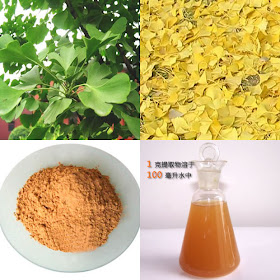Unless you have been living under a rock, you'll certainly have heard of the natural herb referred to as ginkgo biloba. This herb is greatly employed as of late, and it is gradually growing in recognition. It can be seen almost everywhere - in the form of tablets or capsules, liquid extracts, teas, skin care products, fruit shakes, nutritional supplements, endurance formulas as well as nutrition bars. But what specifically is in this herb that is surrounded by so much hype? Does it in fact live up to all of the medical advantages and health-related claims marketed by suppliers, endorsed by professionals as well as recommended by medical professionals?
 |
| Ginkgo Biloba |
Extensive studies have been done, and done about this tree. Many studies have proven its capabilities. Accepted most of the Ginkgo biloba extract on their own or as a two-lobed seed inside the fruit. Application of these compounds is thought to hold some blood. This will increase the muscle tone in the walls of blood vessels and result in better blood circulation.
Many people using ginkgo biloba for several reasons. Some people use it to relieve the sensation of pain before menstruation, others will use it to enhance performance, concentration and their minds because of certain conditions such as Alzheimer's disease, stroke and Alzheimer's disease. Ginkgo has also been considered as the solution to sexual dysfunction.
Ginkgo is a very good addition to help men and women who are suffering from the eye. One study found that many people with glaucoma who took ginkgo had improvement in their vision. It could perhaps also help prevent or reduce the difficulties as well as age-related macular degeneration with This herb may help treat the eyes of the people.
Ginkgo has also been used in cooking and are important in traditional Chinese cuisine. Tree nuts in general are included in the porridge and it has been usual in the course of special occasions like Chinese New Year's Day and wedding receptions. China considers that they have sex. Japanese ginkgo seeds are also part of their diet.
Fewer side effects of ginkgo include nausea, dizziness, diarrhea, headache, or even an upset stomach. It's always a good idea to contact your doctor before you receive the ginkgo biloba.
No comments:
Post a Comment